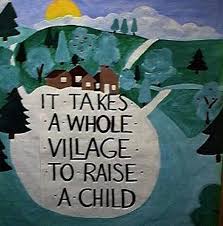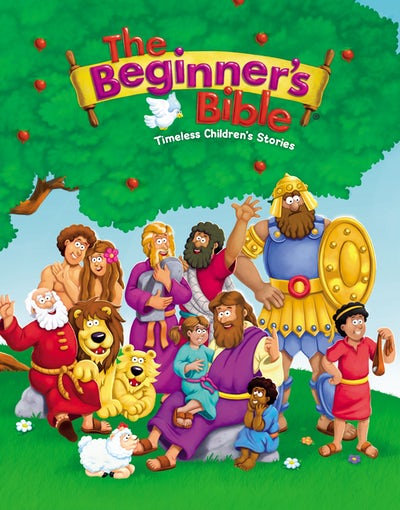In the final part of our series on living as a Christian, we think about raising children in the Christian faith. This is an important area but one which is often neglected. As the Dad of two young girls myself, I appreciate how hard parenting can be! So let’s spend a moment thinking about what the Bible says about children before we look at how parents can put that into practice.
What the Bible says about children and families
Jesus was exceptional for a man of his time because he showed interest in and welcomed children. He said: “Jesus said, “Let the little children come to me, and do not hinder them, for the kingdom of heaven belongs to such as these” (Matthew 19:14). In those days, children were seen as unimportant. It’s hard for us to grasp how different things must have been then, and how counter-cultural Jesus was being! Jesus welcomed children in a world where children were often unwelcome.
The Bible clearly expects children to be raised to believe and trust in God. One of the Ten Commandments, for example, is: “Honour your Father and Mother”. Paul adds in Ephesians 6:1, “Children, obey your parents in the Lord, for this is right.” So children have an obligation to obey ‘in the Lord’. They belong to him as their parents do. Peter said in his sermon on the day of Pentecost, “The promise is for you and your children and for all who are far off – for all whom the Lord our God will call” (Acts 2:39).
Psalm 145 says:
Great is the Lord and most worthy of praise;
Psalm 145:3-4
his greatness no one can fathom.
One generation commends your works to another;
they tell of your mighty acts.
This is the typical pattern throughout the Bible – the faith of one generation being passed on to the next generation. For example, when God instructs the Israelites to prepare for the first Passover, he instructs them what to say when children ask what it means (Exodus 12:26). Christians from one generation are to pass on the faith to the next generation.
Brief Aside on baptism: Christians have different views about whether children should be baptised or not. Some people believe it is right to baptise infants, others believe we should wait until children are old enough to make a decision for themselves. I, as an Anglican, believe that it is right to baptise children – but I know that many people have a different view of the Bible. I’m not trying to argue a particular case here in terms of baptism! I would hope that we all find common ground in that Christian parents and the church have a responsibility to teach the faith to their children.
What does that mean in practice?
Although this has only been a brief overview, I hope that it’s given some indication of why this topic is important. Let’s turn to think about how we can put this into practice.
For parents (and other family members)
I am reminded of your sincere faith, which first lived in your grandmother Lois and in your mother Eunice and, I am persuaded, now lives in you also.
2 Timothy 1:5
God has given the family to be the basic building block of society, in particular when it comes to the raising of the next generation. One important thing for parents to remember is that children will naturally look to you as they grow up. If your faith doesn’t mean anything to you, it won’t mean anything to your children. You need not just to tell them about being a Christian, but model it: show them what it means to live as a Christian. Children are very good at picking up what their parents really value. (And grandparents / uncles / aunties – much of this could apply to you as well!)
Here are a few suggestions as to what this might mean for your home:
Read the Bible and pray with your children. There are loads of good children’s Bibles around (I’ll put some resources at the bottom of this page). Pick one which is appropriate for your child’s age and read it with them, maybe at bedtime. Pray with them as well. Help them to understand how faith connects with our lives – e.g. we can thank God for good things he’s done, we can pray for things we’re worried about. Encourage your children to pray.
Make church a priority. One of the best things my parents ever did for me was ensuring that we were in church every week, come what may. Church was the one nonnegotiable thing we did each week. That helped enormously when I had to start making my own decisions about my time. Proverbs 22:6 says, “Start children off on the way they should go, and even when they are old they will not turn from it.” Bringing them to church is one of the best ways you can do that!
Try to prioritise Christian over secular groups. There is often a choice of activities for children to go to. Some groups are explicitly Christian, while some aren’t. Personally I would suggest prioritising the Christian groups where possible. For example, my eldest daughter goes to Girls’ Brigade, rather than one of the secular alternatives. It helps to teach children that Christian activities are important!
When all this is not possible… Obviously all of these things are an ideal. Sometimes children come to church when one or both parents are not Christian. Sometimes when only one parents is a Christian, it can be hard to compromise. I am not here trying to pour guilt onto parents! But it’s important to stress that parents are important, and that we shouldn’t assume it’s enough simply to hand children over to the professionals (e.g. children’s leaders).
Don’t be afraid to let children in to your spiritual life. Being a Christian doesn’t mean we need to be perfect or having everything sorted. It just means we need to take those things to the Lord and let him deal with it. If you’re worried about something, or you’ve done something wrong, don’t be afraid to let your children see how you deal with it as a Christian – e.g. praying about it, asking for forgiveness from God. I don’t mean it has to be a performance! But just be a genuine Christian in front of your children. You don’t have to hide it!
Above all – pray for your children! Whatever else you do, make sure you pray for your children. At the end of the day, they are in his care and it is the duty of all parents to pray for their children. In particular, don’t just pray for their physical needs, but pray for their spiritual growth as well. However hard we try, we know that we can never be perfect parents – it’s so important to commit children to our perfect Heavenly Father.
For the rest of the church family

The good news for parents is – you’re not alone in bringing up children! There’s an African Proverb, “it takes a village to raise a child”. I think Christians could add to that, “it takes a church to raise a child.” The church shares in the responsibility for children. Most churches have activities for children e.g. clubs, Sunday schools, or other groups. Church can also be a good place to get to know other parents and for your children to meet Christians of their own age.
So my suggestions (and most of these would apply whether you have children or not!):
Look out for other children or young people. Try to take an interest in all the children in the church – pray for them. Children are part of the church too! Think about how you can support and encourage them and their parents. A few years ago, a girl who’d come to our church holiday clubs from a young age started coming to church and came to Christ. Although her parents are not Christian and don’t come to church, I know she has very much appreciated relationships with the adults in the church.
Try to build good relationships with other Christian families. It’s great if your children can get to know and spend time with other Christian children. Peer pressure is a real thing for children – but it can have a positive effect as well as a negative one!
Volunteer to help with children and youth work. If you have some time, why not volunteer to help out? Age is no barrier – in fact, when I was younger, some of my youth leaders were well past retirement age. Don’t think children or youth work is down to young and ‘trendy’ people! Children and young people value love and authenticity. If you love and care for them, they will respect you.
Resources to help you
Firstly, let me mention one book – Gospel Centered Family. My wife and I found it very helpful when thinking about being Christian parents.
Children’s Bibles

There are lots of good Bibles to help children get into the Bible. A good one for very young children is the Beginner’s Bible.
We also like the Big Picture Story Bible and the Jesus Storybook Bible – both of which are suitable for younger children.
When your child is old enough, you could get them a Bible of their own – the International Children’s Bible is very good for children who have started to read on their own.
There are also a whole variety of Bible reading notes for children and teenagers.
Teaching children the Christian faith
I’d just like to give a special mention to these three books: Everything a child should know about God & prayer, and everyone a child should know. Our girls really like these books. They basically do what Understand the Bible aims to do, but for children.
Music
Something which can really help teaching children the faith is learning songs which contain the truth. It’s surprising how deeply songs can go in! There are loads of good options – as a family we love:
- Awesome Cutlery – “because the truth rocks” – they’re fantastic. Very humorous little sketches and catchy songs.
- Colin Buchanan – my girls absolutely love Colin. He’s written a lot of children’s Christian music.
- The Ology – an album from Sovereign Grace Kids – another one my girls love.

